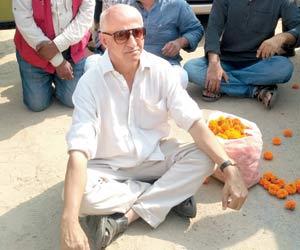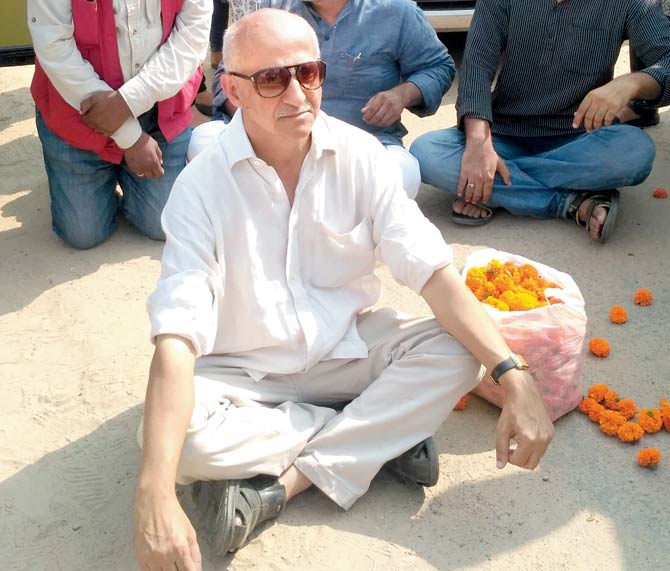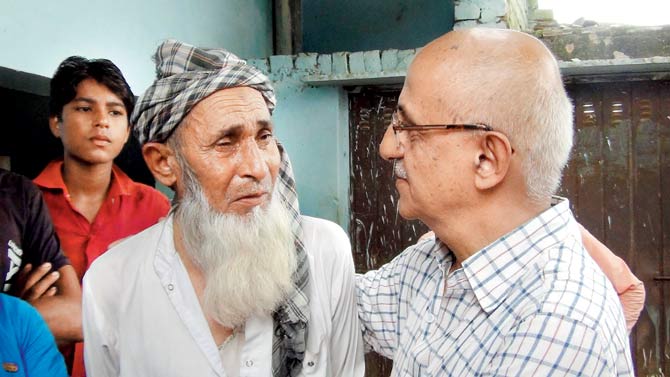Noted human rights activist and author Harsh Mander speaks on humanity, and the lack of it, which emerged during his month-long journey across India

For former IAS officer and noted human rights activist Harsh Mander, the recent incidents of mob lynching were turning too brazen to be left unaddressed. On September 4, he set out on Karwan-e-Mohabbat (a journey of love), across seven states to meet 55 families who had lost a loved one to mob violence. The journey culminated on October 2, in Porbandar.
ADVERTISEMENT

Harsh Mander sits on a dharna at the spot where Pehlu Khan was lynched
Ahead of his visit to Mumbai today, where he will be part of a discussion on the status of human rights in India, mid-day spoke to Mander about his experience and the road ahead. Edited excerpts:
How did the idea of Karwan-e-Mohabbat come about?
There is a rising tide of hate [and] violence around the country. The aim of Karwan-e-Mohabbat was to be a voice of solidarity for the people living in fear, to assure them that they are not alone. The journey was [also] a call of conscience to the majority community.

Mander in Dhulawat, with the grandfather of Karar, who was killed in an encounter
The road was not a smooth one...
We met opposition when we were travelling from Haryana to Rajasthan. We wanted to place flowers at the spot where Pehlu Khan was lynched. But members of the Hindu Jagran Manch, Vishwa Hindu Parishad and Bajrang Dal wouldn't let us. When we sat on a dharna, the local administration kept asking us to call it off. But we were also met with a lot of love and warmth. By the end of the journey, about a hundred people had joined the movement.
What emerged out of Karwan-e-Mohabbat?
The journey reached a stage where we thought we should continue it by visiting one state every month. The Karwan included a wonderful team of chroniclers - writers, poets, photographers, videographers - who, in the days to come, would take the message of what they saw during the journey across the country. We will also be inviting volunteers for a nationwide hate crime watch. It meant a great deal to the bereaved families when we went to meet them because so far, no one from the state had done that. We want to offer them legal help and psychosocial care in every way possible.
 Subscribe today by clicking the link and stay updated with the latest news!" Click here!
Subscribe today by clicking the link and stay updated with the latest news!" Click here!






